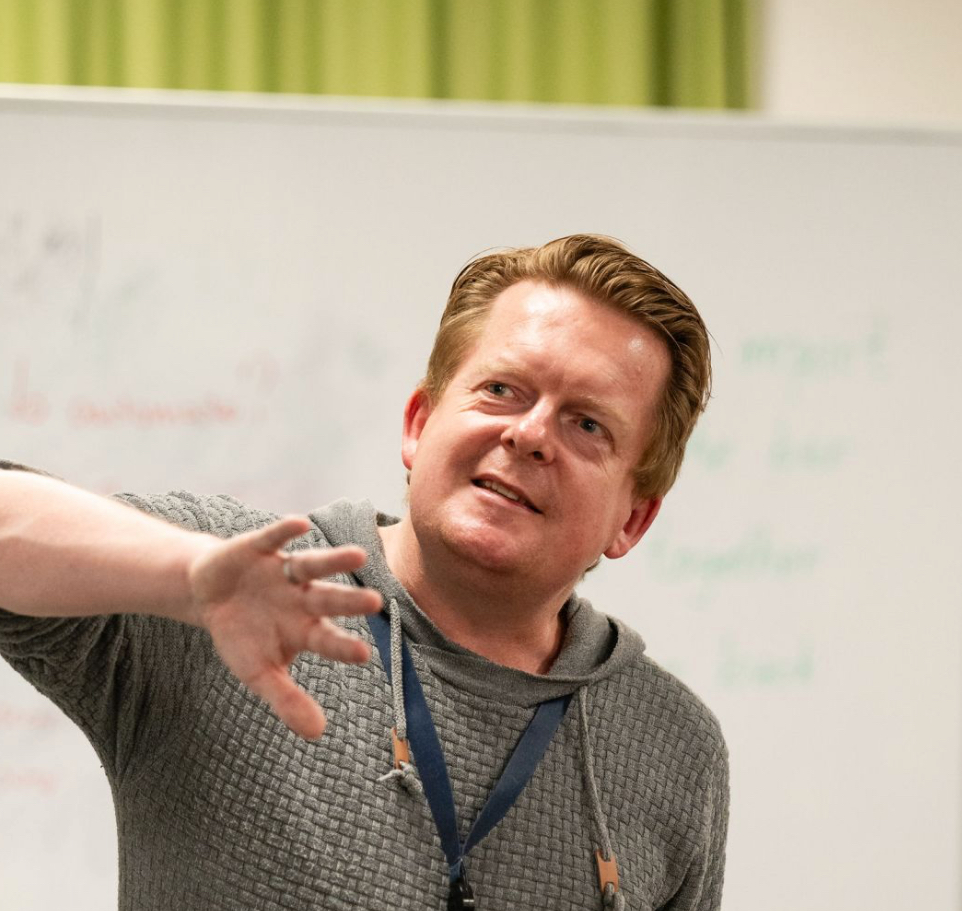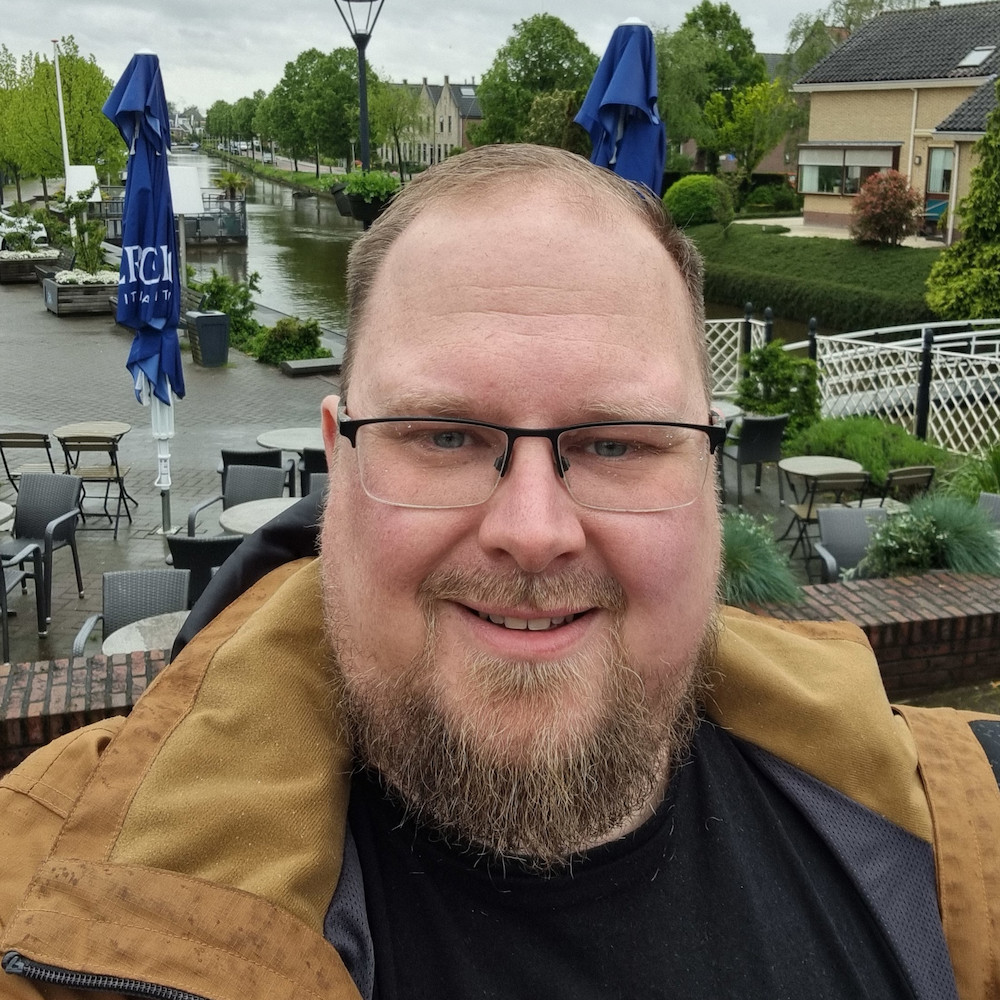Programma













Sprekers
-

Alex Thissen
Sessie: Closing the loop: instrumenting your .NET applications with OpenTelemetry
You build it, run it and own it. Knowing how your application behaves is easy in your development environment, because you have better debugging capabilities there. It gets more complicated when you run in production. Getting feedback from your application and learning its behavior is essential to close the DevOps feedback loop. In this session, you'll learn what it takes to instrument your .NET application to get rich feedback in every stage of the lifecycle. We start by looking at the various ways to add logging, tracing, and metrics using the built-in .NET libraries. We will consume the telemetry data from your development environment with OpenTelemetry; no cloud required. Next, we will cover the production scenario and see how you can leverage Azure with Application Insights and Azure Monitor. By the end of your session, you'll have a good understanding how to add proper instrumentation with OpenTelemetry and to put it to good use during your entire development lifecycle. -

Bas Dijkstra
Sessie: Solving the integration testing puzzle with contract testing and Pact
Setting up and running integration and end-to-end tests in distributed software systems is hard. Making sure that all components are deployed, with the right version, in the right state, with the right data is a challenging task for many teams. Contract-based testing is an approach that tries to address this problem and simplify and speed up integration testing for distributed software systems. In this talk and live demo, you'll learn about the basic principles behind contract-based testing, the questions it tries to answer, and the three different approaches to contract-based testing. You will also see contract-based testing in action, using the well-known Pact library. To wrap up the talk, we will also talk about how to adopt contract-based testing in your team and organization, and some of the potential pitfalls that should be addressed along the way. -

Eduard Keilholz
Sessie: Glueing .NET Aspire Services with Container Apps and Dapr
Bringing multiple .NET Aspire services to production can be challenging, especially when scaling, handling communication, and ensuring resilience between services. In this session, we’ll explore how Azure Container Apps, coupled with its built-in Dapr integration, can simplify this process and elevate your microservices architecture. Attendees will learn how to containerize .NET Aspire services and deploy them to Azure Container Apps for a seamless, managed, and scalable environment. We’ll cover essential Dapr components like service invocation, pub/sub, and state management, showcasing how they can enhance communication and reliability without adding complex code. By the end of this session, you'll have a roadmap for using Azure Container Apps and Dapr to streamline the deployment and operation of .NET Aspire services in production. This is a must-attend for developers and architects looking to simplify their service landscape with modern, cloud-native solutions on Azure. -

Erwin van der Valk
Sessie: Don't let your access tokens be stolen
When building browser based applications, it's been a common practice to handle access tokens in the browser. Which is great if you're a hacker. Let's look at how hackers can steal your access tokens, what they can do with it, but more importantly how to protect yourself using the BFF pattern. -

Jasper Siegmund
mstack
Sessie: From Dysfunction to High-Performance; practical team fixes
Even been in a situation where the code wasn't the problem, but everything around it was? The stand-up was pointless, the PO disappears after sprint planning, your scrum master had 3 teams to master and decisions came from an ivory tower far above your IDE. The people were smart. The potential was there. But somehow... it just didn't work? In this session, we'll dive into real-world, all-too-familiar scenarios that derail development teams on a daily basis. And more importantly, what you can actually do to fix them. Whether you're dealing with unclear priorities, broken communication, or just a general sense of 'meh', this talk offers practical, developer-friendly strategies to help your team start performing like one. Expect stories and anecdotes, tips and tricks you can bring back to your next retrospective. This is your chance to git pause on the hardcore tech talks and get real about the human side of software. Walk away with ideas that might actually make work suck less. -

Jev Suchoi
Sessie: Decorating Pipelines with Compliance in Azure DevOps
Get ready to peek behind the CI/CD curtain! In this fun, educational, and interactive session, we’ll explore the power of pipeline decorators in Azure DevOps, one of the platform’s most underrated governance features. You’ll learn how to inject compliance and security steps directly into your organization’s pipelines without changing a single line of YAML. Through a live demo, I will show you how to create your own decorator extension to automatically enforce critical validations like malware protection, static code analysis, and policy checks. Whether you're managing a few pipelines or hundreds, decorators help you scale governance and shift security left, without slowing your teams down. By the end, you’ll walk away with practical knowledge, hands-on examples, and a fresh dose of inspiration to bring automation magic into every pipeline across your organization. -

Klaus Seiler
merapar
Sessie: Evaluations in AI Systems is All You Need
Evaluation is a critical part of every AI system and should be integrated from the very beginning. Unlike traditional software, AI systems aren't deterministic, making evaluation both more complex and more essential—effectively replacing unit, integration, and end-to-end testing. This talk explores how to define, automate, and use test datasets for ongoing evaluation, especially when using LLMs. You'll learn what makes a good evaluation approach—clear, outcome-driven metrics that are fast and automatic—and why getting the right metrics is crucial for development, optimization, and deployment throughout the AI lifecycle. -

Orhan Maden
mstack
Sessie: azd: The CLI created for Azure Developers
The Azure Developer CLI (azd) simplifies infrastructure as code and app deployment using reusable templates so you can focus on writing code instead of setting things up in Azure. -

Paul Stolk
Sessie: Meer dan bots: echte multi-agent AI dankzij Semantic Kernel
Dive into the world of multi-agent AI, where teams of AI agents collaborate on complex challenges. How do you make this manageable and powerful? Semantic Kernel provides the essential framework. This session explores the development of advanced multi-agent applications with Semantic Kernel. Discover the principles behind designing effective, scalable systems of collaborating AI agents and learn how to use them to build innovative solutions. Harness the collective intelligence of AI and help shape the future of application development! -

Roelant Dieben
Sessie: Tokens 101: Making sense of tokenization in AI
Tokenization is a fundamental concept for large language models, but what exactly is a token, how do tokenizers work, and why would we want to use tokens in the first place? Join this session and we will unravel the mechanisms behind transforming textual data into machine-understandable formats together. Through real-world examples and demos, you will grasp the essence of tokenization, the pitfalls, the relevance to prompt engineering, and why it is important to have some understanding of these fundamental building blocks of large language models. -

Shawn Wildermuth
Microsoft MVP, Speaker and Pluralsight Author
Sessie: Just Enough Architecture: Finding the Sweet Spot in System Design
Microservices were a tenet that every developer was told to consider just a few years ago. The backlash from digging into Kubernetes architecture decisions is in full swing. There is a solution for creating just enough architecture and refactoring into scale if you ever actually need it. In this talk, instead of explaining the 'one-true-architecture', we will delve into how to view architecture with pragmatism and optimism. -

Stef Heyenrath
mstack
Sessie: Anonymize your PII data when working with LLMs
In today’s data-driven world, organizations are increasingly using language models (LLMs) like ChatGPT, Gemini, or Claude for a wide range of use cases; from generating customer insights to summarizing emails. While these tools offer immense benefits, using them responsibly, especially when dealing with personal data and compliance (GDPR), is a must. One critical step in preserving privacy and maintaining compliance is anonymizing Personally Identifiable Information (PII) before sending any data to an LLM. This session explains why this is not just best practice, but a necessity and provides insights in which Microsoft Azure solutions can be used to analyze and anonymize your (PII) data before sending it to an LLM. -

Willy-Jan Verberne
mstack
Sessie: Entra ID Workload Identities
Workload Identities are becoming an increasingly essential part of a modern, cloud-based technology landscape. Automated tasks and access to services, resources, and APIs are enabled through the use of these identities. In this session, you will gain insight into the broad range of terminology surrounding Entra ID Workload Identities, including OAuth, OIDC, Service Principals, Managed Identities, and federated credentials.
📍 Locatie
Keizerstraat 12, 5211HG 's Hertogenbosch
